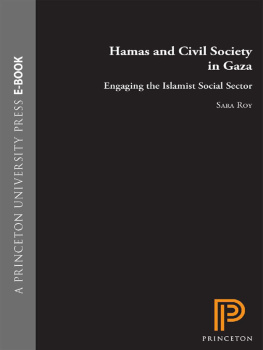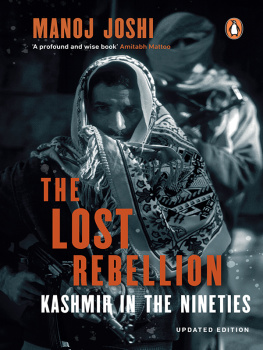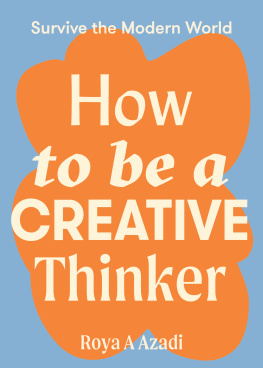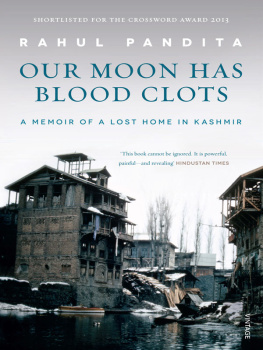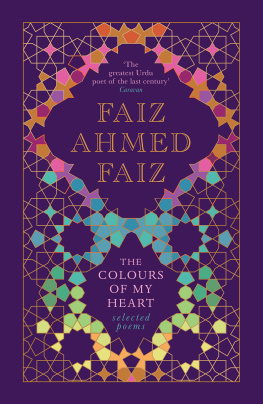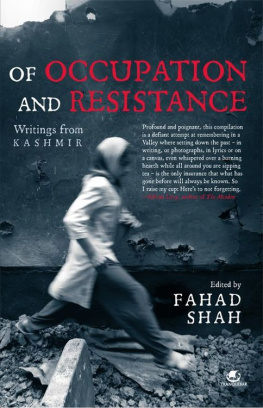Roy - Azadi
Here you can read online Roy - Azadi full text of the book (entire story) in english for free. Download pdf and epub, get meaning, cover and reviews about this ebook. year: 2020, publisher: Haymarket Books, genre: Detective and thriller. Description of the work, (preface) as well as reviews are available. Best literature library LitArk.com created for fans of good reading and offers a wide selection of genres:
Romance novel
Science fiction
Adventure
Detective
Science
History
Home and family
Prose
Art
Politics
Computer
Non-fiction
Religion
Business
Children
Humor
Choose a favorite category and find really read worthwhile books. Enjoy immersion in the world of imagination, feel the emotions of the characters or learn something new for yourself, make an fascinating discovery.

- Book:Azadi
- Author:
- Publisher:Haymarket Books
- Genre:
- Year:2020
- Rating:3 / 5
- Favourites:Add to favourites
- Your mark:
- 60
- 1
- 2
- 3
- 4
- 5
Azadi: summary, description and annotation
We offer to read an annotation, description, summary or preface (depends on what the author of the book "Azadi" wrote himself). If you haven't found the necessary information about the book — write in the comments, we will try to find it.
Roy: author's other books
Who wrote Azadi? Find out the surname, the name of the author of the book and a list of all author's works by series.
Azadi — read online for free the complete book (whole text) full work
Below is the text of the book, divided by pages. System saving the place of the last page read, allows you to conveniently read the book "Azadi" online for free, without having to search again every time where you left off. Put a bookmark, and you can go to the page where you finished reading at any time.
Font size:
Interval:
Bookmark:
AZADI
FREEDOM. FASCISM. FICTION.
FREEDOM. FASCISM. FICTION.
Arundhati Roy

Published in 2020 by
Haymarket Books
P.O. Box 180165
Chicago, IL 60618
773-583-7884
www.haymarketbooks.org
ISBN: 978-1-64259-380-8
Distributed to the trade in the US through Consortium Book Sales and Distribution (www.cbsd.com) and internationally through Ingram Publisher Services International (www.ingramcontent.com).
This book was published with the generous support of Lannan Foundation and Wallace Action Fund.
Special discounts are available for bulk purchases by organizations and institutions. Please call 773-583-7884 or email for more information.
Cover design by Abby Weintraub.
Library of Congress Cataloging-in-Publication data is available.
May tomorrow be more than just another name for today.
Eduardo Galeano
W hile we were discussing the title of this book, my publisher in the United Kingdom, Simon Prosser, asked me what I thought of when I thought of Azadi. I surprised myself by answering, without a moments hesitation, A novel. Because a novel gives a writer the freedom to be as complicated as she wantsto move through worlds, languages, and time, through societies, communities, and politics. A novel can be endlessly complicated, layered, but that is not the same as being loose, baggy, or random. A novel, to me, is freedom with responsibility. Real, unfettered azadifreedom. Some of the essays in this volume have been written through the eyes of a novelist and the universe of her novels. Some of them are about how fiction joins the world and becomes the world. All were written between 2018 and 2020, two years that in India have felt like two hundred. In this time, as the Corona pandemic burns through us, our world is passing through a portal. We have journeyed to a place from which it looks unlikely that we can return, at least not without some kind of serious rupture with the pastsocial, political, economic, and ideological.
The last essay in this collection is about that. Coronavirus has brought with it another, more terrible understanding of Azadi. The Free Virus that has made nonsense of international borders, incarcerated whole populations, and brought the modern world to a halt like nothing else ever could. It casts a different light on the lives we have lived so far. It forces us to question the values we have built modern societies onwhat we have chosen to worship and what to cast aside. As we pass through this portal into another kind of world, we will have to ask ourselves what we want to take with us and what we will leave behind. We may not always have a choicebut not thinking about it will not be an option. And in order to think about it, we need an even deeper understanding of the world gone by, of the devastation we have caused to our planet and the deep injustice between fellow human beings that we have come to accept. Hopefully, some of these essays, written before the pandemic came upon us, will go some small way towards helping us negotiate the rupture. Or, if nothing else, a moment in history that was recorded by a writer, like a metaphorical runway before the aircraft were all in took off for an unknown destination. A matter of academic interest for future historians.
The first essay is the W. G. Sebald Lecture on Literary Translation, which I delivered in the British Library in London in June 2018. Much of it is about how the messy partitioning of the language we knew as Hindustani into two separate languages with two separate scriptsnow sadly and somewhat arbitrarily called Hindi and Urdu (in which erroneously Hindi is associated with Hindus and Urdu with Muslims)presaged the current project of Hindu Nationalism by more than a century.
Many of us hoped that 2018 would be the last year of the reign of Narendra Modi and his Hindu nationalist party. The early essays in this collection reflect that hope. As the 2019 general election approached, polls showed Modi and his partys popularity dropping dramatically. We knew this was a dangerous moment. Many of us anticipated a false-flag attack or even a war that would be sure to change the mood of the country. One of the essaysElection Season in a Dangerous Democracy (September 3, 2018)is, among other things, about this fear. We held our collective breath. In February 2019, weeks before the general election, the attack came. A suicide bomber blew himself up in Kashmir, killing forty security personnel. False flag or not, the timing was perfect. Modi and the Bharatiya Janata Party swept back to power.
And now, only a year into his second term, through a series of horrifying moves that this book deals with, Modi has changed India beyond recognition. The infrastructure of fascism is staring us in the face, the pandemic is speeding up that process in unimaginable ways, and yet we hesitate to call it by its name.
I started to write this introduction while US president Donald Trump and his family were on an official visit to India in the last week of February 2020. So it too has had to pass through the rupture, the pandemic portal. The first case of coronavirus in India had been reported on January 30. Nobody, least of all the government, paid any attention. It had been more than two hundred days since the state of Jammu and Kashmir had been stripped of its special status and placed under an information siege, and more than two months since a new anti-Muslim, unconstitutional citizenship law had brought millions of protesters onto the streets of India. In a public speech to a crowd wearing Modi and Trump masks, Donald Trump informed Indians that they play cricket, celebrate Diwali, and make Bollywood films. We were grateful to learn that about ourselves. Between the lines he sold us MH-60 helicopters worth $3 billion. Rarely has India publicly humiliated herself thus.
Not far from the Grand Presidential Suite of the Delhi hotel where Trump spent the night, and Hyderabad House, where he held trade talks with Modi, Delhi was burning. Armed Hindu vigilante mobs in northeast Delhi, backed by the police, attacked Muslims in working-class neighborhoods. Violence had been in the air for a while, with politicians belonging to the ruling party delivering open threats to Muslim women conducting peaceful sit-in protests against the new citizenship law. When the attack began, police were seen either standing aside or backing up the mob. Muslims fought back. Houses, shops, vehicles were burned. Many, including a policeman, were killed. Many more were hospitalized with gunshot wounds. Horrifying videos flew around the internet. In one of them, grievously wounded young Muslim men, laid out on the street, some piled against each other by uniformed policemen, are being forced to sing the National Anthem. (Subsequently one of them, Faizan, died from having a policemans baton pushed down his throat.)
Trump made no comment on the horror swirling around him. Instead he conferred on Narendra Modi, the most divisive, hateful political figure in modern India, the title Father of the Nation. Until recently, this was Gandhis title. I am no fan of Gandhi, but surely, even he did not deserve this.
After Trump left, the violence went on for days. More than fifty people lost their lives. About three hundred were admitted into hospital with grievous wounds. Thousands of people moved into refugee camps. In Parliament, the home minister praised himself and the police. Members of the ruling party gave speeches to their smirking supporters in which they more or less blamed Muslims for provoking the violence, for attacking themselves, burning their own shops and homes, and throwing their own bodies into the open sewage canals that crisscross their neighborhood. Every effort was made by the ruling party, its social media trolls, and the electronic media it controls to portray the violence as a HinduMuslim riot. It was not a riot. It was an attempted pogrom against Muslims, led by an armed, fascist mob.
Next pageFont size:
Interval:
Bookmark:
Similar books «Azadi»
Look at similar books to Azadi. We have selected literature similar in name and meaning in the hope of providing readers with more options to find new, interesting, not yet read works.
Discussion, reviews of the book Azadi and just readers' own opinions. Leave your comments, write what you think about the work, its meaning or the main characters. Specify what exactly you liked and what you didn't like, and why you think so.

